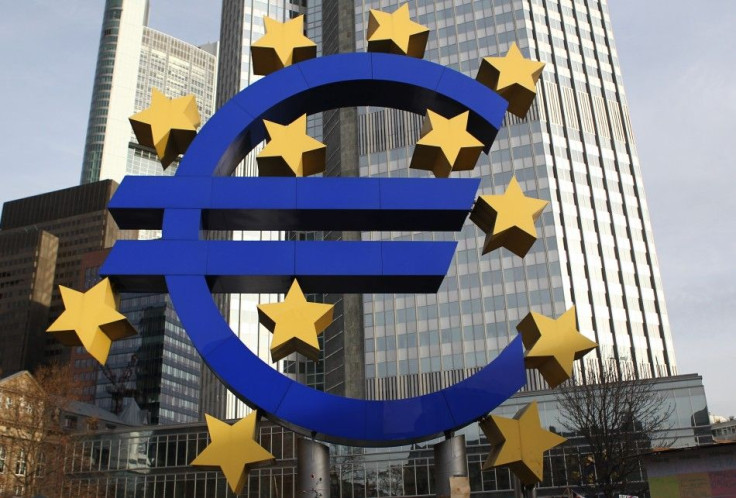Euro Zone Bolsters Financial Firewall By Combining Rescue Funds

Euro zone leaders Friday temporarily expanded the so-called firewall designed to protect Europe from another Greek-style sovereign default.
Finance ministers from the 17-member monetary union, meeting in Copenhagen, are under pressure from the bond market to boost their region's financial credibility, as debt-strapped euro states are finding it increasingly costly to borrow money.
Spain, for example, had to offer investors 5.46 percent interest on Thursday to borrow money for 10 years. That's close to the 6 percent level that many economists deem unsustainable and the level at which Greece required the first of its two massive financial bailouts.
The euro zone ministers agreed to combine, for one year, a pair of rescue funds meant to help avert a default by Spain, Italy or Portugal, or a repeat by Greece, whose prime minister warned Friday that a third bailout might be necessary.
Under the plan approved Friday, the euro zone's temporary €440 billion ($588 billion) European Financial Stability Facility, or EFSF, will now operate for one year alongside the permanent €500 billion European Stability Mechanism, or ESM, which takes effect in July, for a total of €940 billion.
That total remains short of the €1 trillion that the International Monetary Fund has said will be needed to convince bond investors that the euro zone has the financial firepower to to keep Spanish bond yields from rising to dangerous levels. The IMF, along with the European Union and the European Central Bank, is one of the members of the so-called troika that has managed Greece's two rescues.
The €940 billion figure also includes about €192 billion already paid or committed to Greece, Ireland and Portugal as well as money that could be raised if euro zone states give the ESM more capital more quickly than planned, Reuters reported.
Bond traders sounded less than convinced that the ministers' move Friday will dissuade investors from piling on with negative bets on bonds of the euro zone's weakest members.
At the end of the day the key question is whether this new firepower is enough, Steve Barrow, of Standard Bank in London, told Reuters. Clearly if things turn down again, and especially if more bailouts are needed, the tricky issue of underfunding the ESM/EFSF relative to the potential bailout need is bound to resurface.
© Copyright IBTimes 2025. All rights reserved.






















